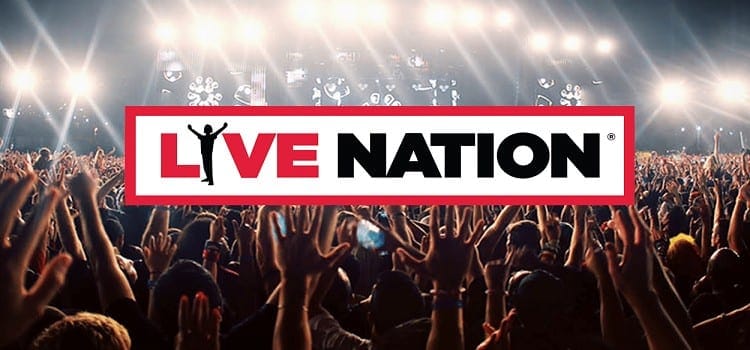In recent years, a litany of voices have called for better consumer-friendly regulation on ticketing and the live events industry as a whole. From consumer advocates to state and national legislators on all ends of the political spectrum and even actual regulatory agencies like the FTC, efforts to push reform have been there, but largely unsuccessful. A recent nugget in a Sports Business Journal article examining the ticketing industry and its post-pandemic recovery process shines a light on why: Live Nation’s enormous spending on lobbying.
According to the story by Bret McCormick, Live Nation Entertainment spent $2.1 million on lobbying in 2021 – and that is during a period that saw unprecedented interruption to their cash flow and business operations. That figure is five times more than the No. 2 lobbying layout on the year, which was Vivid Seats. “As many as 26 people were fighting for Live Nation and Ticketmaster’s interests in Washington, D.C., at times last year.’ McCormick writes.
Live Nation has been in the crosshairs of regulators and consumer rights advocates for years, many of whom argue that its business operates as a monopoly. The company’s vertical integration, which houses artist promotion, venue ownership and operation, and event ticketing under one enormous umbrella, makes it tremendously hard for any competition at scale and it continually develops new technology and practices that further discourage competition on both primary and resale ticketing sides, such as mobile-only Safetix systems.
Rep. Bill Pascrell has famously pursued better regulation of what he plainly called “Live Nation and Ticketmaster’s abuse of their monopoly power” in an Op-Ed published by the New York Times in 2018. Rep. Pascrell submitted that letter in the wake of an A1 story published by the newspaper detailing allegations of monopolistic behavior, and a potential Department of Justice investigation on the subject, focusing on whether or not Ticketmaster and its parent had violated the terms of a consent decree they had agreed to as part of their merger back in 2010.
In that story, Ben Sisario and Graham Bowley indicated that “eight years after the merger, the ticketing business is still dominated by Live Nation and its operations extend into nearly every aspect of the concert world,” it read. “Ticket prices are at record highs. Service fees are far from reduced. And Ticketmaster, part of the Live Nation empire, still tickets 80 of the top 100 arenas in the country. No other company has more than a handful. No competitor has risen to challenge its pre-eminence.”
Nearly four years later, little has changed. The Department of Justice did, in fact, investigate Ticketmaster and Live Nation. It found multiple violations of that agreement in its investigation, including the use of threats towards venues that were considering using ticketing vendors aside from Ticketmaster. But in the end, the company received what amounted as a slap on the wrist – an extension of the existing consent decree through 2025 and some penalties.
The decision in that investigation “does little or nothing to deter further anticompetitive conduct by Live Nation-Ticketmaster,” wrote American Antitrust institute president Diana L. Moss at the time. “Repeating a decade old enforcement error, while expecting a different result, does a disservice to competition and consumers. A more effective approach the second time around would have furthered the goal of strengthening merger enforcement, including setting a precedent that conduct remedies are largely ineffective in restoring competition and thus counseling against their future use.”
While weathering the pandemic, numerous additional calls for action against the company’s behavior have been made – from artists rights groups, to economists, to consumers filing lawsuits, to the Federal Trade Commission itself, but little has changed. Even a prosecution over employees illegally accessing a competing company’s computer systems to gather critical data and gain a competitive advantage – a company that Live Nation subsequently purchased in order to end civil litigation alleging data espionage – was sidestepped via the payment of a $10 million fine. The death of ten concertgoers at Astroworld in Houston has led to a new round of questions about the company’s checkered safety record, but efforts to get CEO Michael Rapino to answer those questions on the record in front of Congress have been delayed, apparently indefinitely.
Despite all this, Live Nation Entertainment has never been stronger. Financially, the company is reportedly once again on track for a record year, with Ticketmaster posting its best quarter ever in Q4 of 2020. It continues to make enormous deals, including its recent acquisition of the dominant event promoter and ticketing provider in Latin America, Ocesa.
As the Sports Business Journal story points out, regulation is “as much of a threat to Live nation and Ticketmaster’s business” as any competition could hope to be. But thus far, the deep pockets and generous cash outlay at both the local and national level have prevented anything meaningful from being accomplished.
“Politicians yell and scream, but it never gets to the point where it becomes punitive to the company,” said Moody’s analyst Peter Adu. “There will be noise on the margins, which we’ve always talked about, that’s one of the concerns [Moody’s has]. But at the same time, it’s difficult to figure out what the regulators would do to break the business.”




